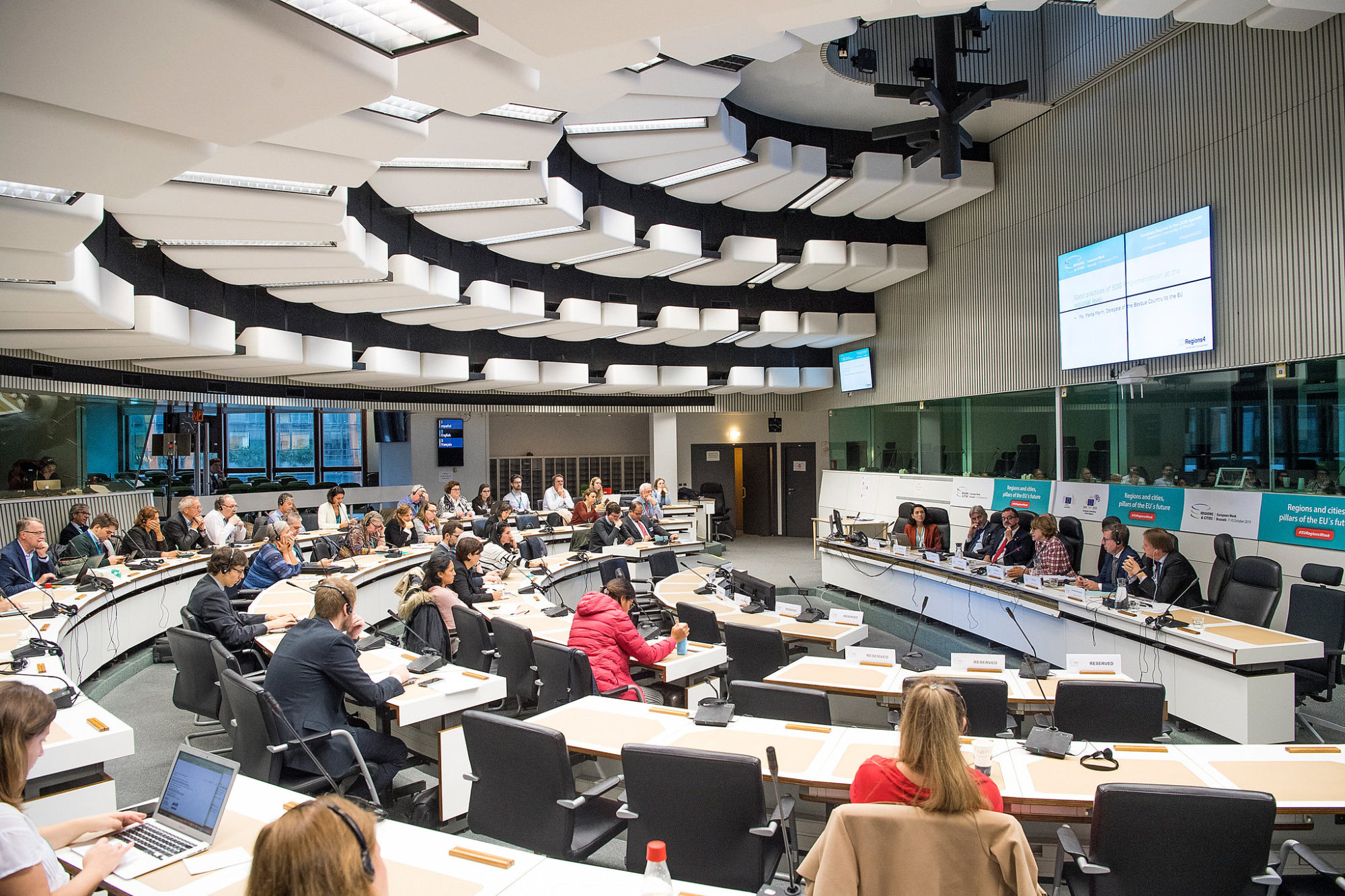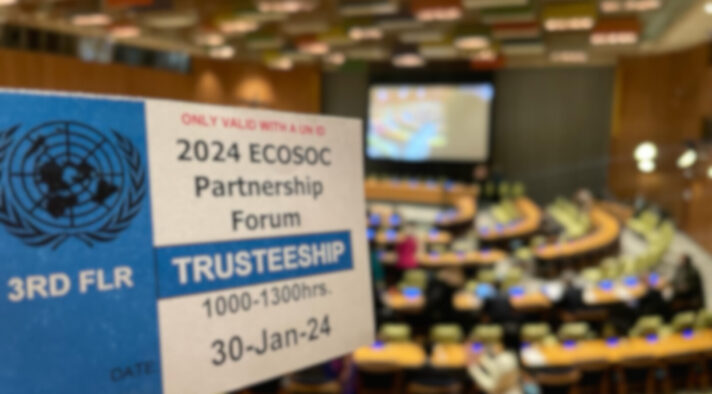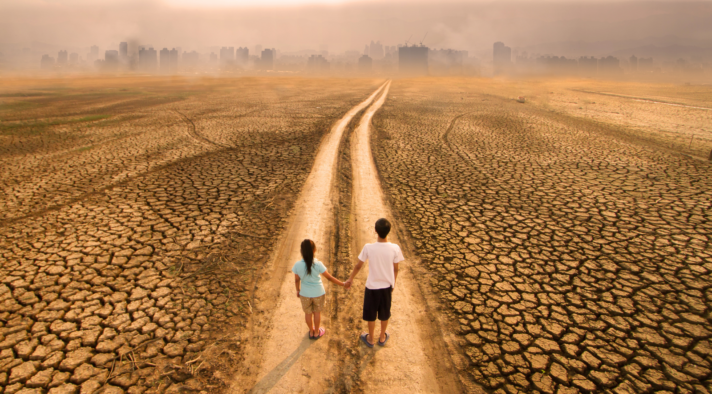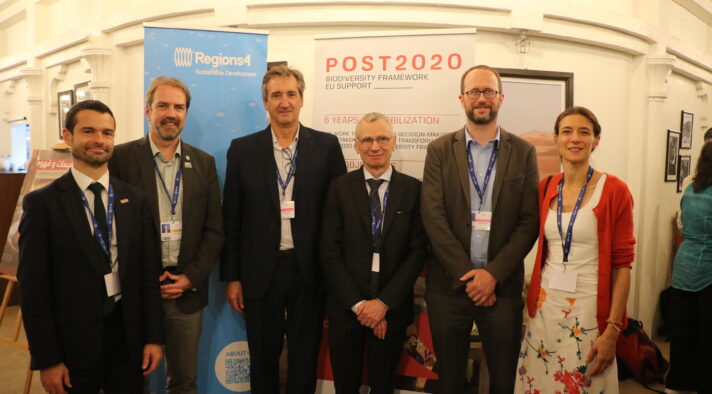The European Week of Regions and Cities (EWRC) held a successful 17th edition on 7-10 October 2019 in Brussels, Belgium, bringing together over 9,000 participants for nearly 400 sessions, debates, exhibitions, and networking opportunities about the different aspects of regional development. Regions4 Secretariat participated in several sessions to exchange experiences and the regions’ good practices in sustainable development, international cooperation, partnerships, and regional innovation.
Regions4 and the Commission for Economic Policy of the European Committee of the Regions (ECON/CoR) organised the session “European Regions in the 2030 Agenda: towards a Community of Practice” on 9 October to showcase good practices and share common challenges of EU regions in localising the 2030 Agenda. The session was another step in the direction of the establishment of the Community of Practice European Regions4SDGs as a collective modality of SDGs implementation.
Bert Kuby, Head of Unit of the Commission for Economic Policy of the European Committee of the Regions, opened the session recalling that 65% of the 169 sub-targets of the SDGscannot be reached without the engagement of, and coordination with, local and regional governments. “While they face challenges on lack of data, reporting, and multi-level coordination, a collective approach will allow regions to learn from one another and avoid common obstacles. This notion of partnership is exactly why we are here today: CoR and Regions4 support a collective and bottom-up approach to tackle the localisation of SDGs” he declared.
The session presented four tangible examples of frontrunner regions across Europe that have different strategy approaches and policy tools to take action towards the localisation of the SDGs.
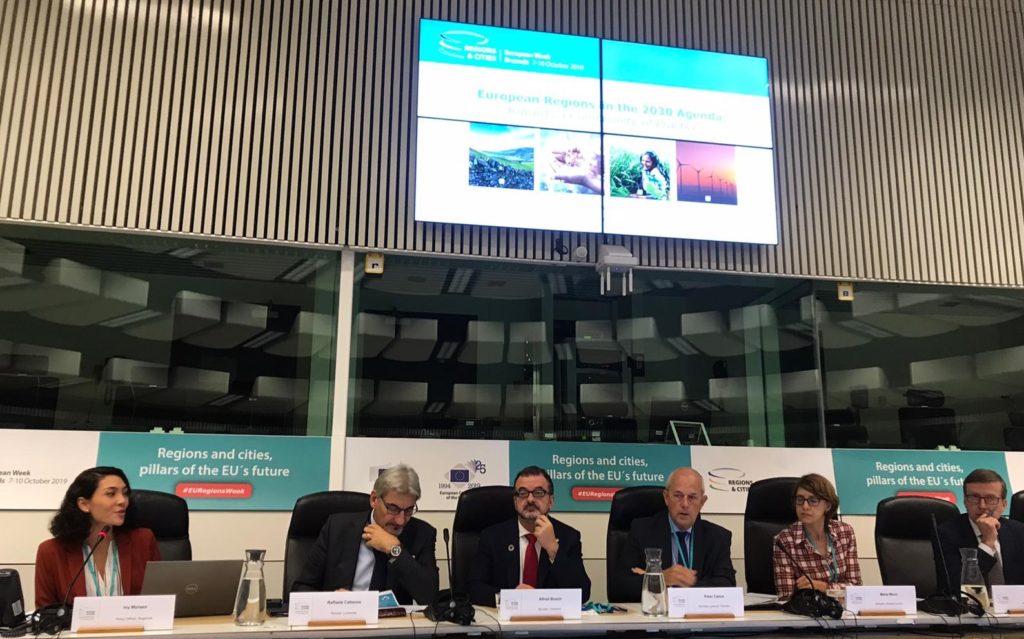
Raffaele Cattaneo, Minister for Environment and Climate of the Lombardy Region, presented the recently adopted Agreement for sustainable development in Lombardy in alignment with its Regional Development Programme. Signed by the regional government and 54 main institutions, associations, civil society, and universities, it will accelerate actions for the 2030 Agenda, beneficiating 10 million people.
Alfred Bosch, Minister for External Action, Institutional Relations and Transparency of the Government of Catalonia, highlighted the importance of a coordinated interministerial process that started in 2015 with a comprehensive analysis of how the SDGs can be localised and which culminated last September in the approval of the Catalan Plan for the implementation of the 2030 Agenda, which aims at boosting policy coherence and has more than 900 concrete and measurable commitments.
Peter Cabus, Secretary-general of the Department of Environment and Spatial Development of the Government of Flanders, drew attention to Flanders’ Focus 2030 and Vision 2050, which are medium- and long-term strategies to the SDGs that establish a new governance model and set seven transition priorities, focusing on system innovation, links to the budget, and stakeholder participation.
Marta Marín, Delegate of the Basque Country to the EU, underlined the progress of the Agenda Euskadi-Basque Country 2030 adopted in 2018, including its annually produced monitoring report that is sent to the Basque Parliament. The region’s actions are managing to mobilise the Basque society as a whole: “The Agenda is being a key element to mobilise more institutions and social and economic actors that are adopting it and contributing to the territorialisation of the SDGs,” she added. Training experiences, Sustainable Bonds, and multi-stakeholder engagement have been key strategies for setting a high bar.
The benefits of this exchange were emphasized by Ivy Moraes, Sustainable Development Policy Officer of Regions4, who commented on the challenges of the complex and multi-faceted nature of the SDGs and the need for interaction on an ongoing basis, exercising deep listening and encouraging results from collective processes. In this sense, Regions4 is proposing a community of practice to enable opportunities for cooperation, peer-learning, support, and innovation that enhance regional governments capacities and scale up their ambitions. “Rather than a mechanism for solely strengthening the individual actions of each European region, the Community of Practice European Regions4SDGs is a fundamental action to ensure a truly collective implementation of 2030 Agenda,” she said.
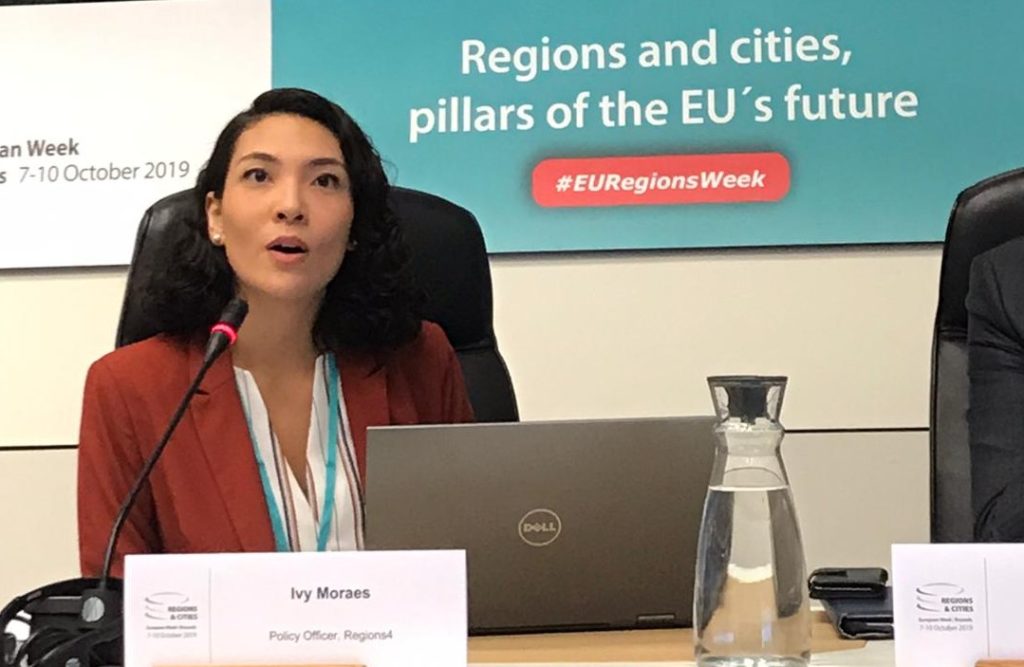
Participants welcomed the Regions4 proposal and recognised that it does not only help regions improve and accelerate their efforts in the 2030 Agenda, but it allows the consolidation of a joint process for SDG policy coordination in the EU-level. They stressed that any framework adopted at the EU-level for the SDGs must include a strong territorial component with a specialised role assigned for regional governments and the necessary means for enabling their contributions. There is a clear need for a cross-policy strategy for SDG implementation in the EU as well as SDG mainstreaming and SDG proofing of long-term strategies.
Finally, Arnoldas Abramavičius (LT/EPP), Member of Zarasai District Municipal Council and Rapporteur Commission for Economic Policy (ECON) echoed the discussions about the need for an EU overarching strategy for sustainable development containing targets, timelines, and deliverables: “its absence is a major impediment to greater integration of the SDGs into EU governance, budgeting, and monitoring instruments at the national and subnational level.” He closed the session highlighting that some regional authorities are already fully mobilised about their responsibility to make a difference when it comes to the SDGs, nonetheless, he continued, “partnerships and communities of practice like the European Regions4SDGs will be instrumental in convincing other stakeholders to join the movement and to reach the objectives of the 2030 Agenda.”
Regions4 will continue to represent the regional voice in the international and European agendas and show that we can commit to more ambitious actions in the remaining ten-year period until the target date for reaching the SDGs.
Should your region be interested in working within a European community of peers for the exchange, learning, support, and international recognition of subnational actions, please contact us at imoraes@regions4.org.
